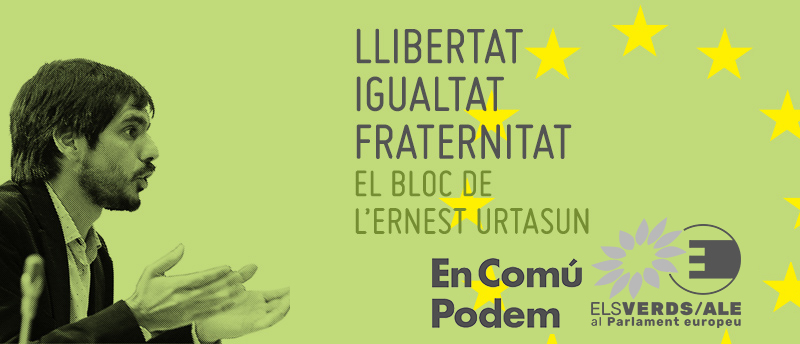Dear EOC Acting President, Niels Nygaard,
Dear EOC Secretary-General, Raffaele Pagnozzi,
Dear Chair of the European Union Commission at the EOC, Juri Tamm,
Dear Chair of the Gender Equality in Sport Commission at the EOC, Sarah Keane,
Dear Chair of the Environment and Sports for All Commission at the EOC, Gian Primo Giardi,
As Members of the European Parliament who actively work for the construction of a multicultural EU which is united in diversity, we have the utmost appreciation for events that bring people together to celebrate the diversity of our continent. It is our deep belief that these exchanges contribute greatly to Europeans experiencing the true diversity that a European identity encompasses. The delivery of elite sporting events, such as the European Olympic Games, is a stellar example of bridge-building through sports and we commend you on your excellent work in exploring diversity in such a way.
In your official website, the EOC explains that it uses several tools to assist coaches and athletes in their pursuit of excellence in international competitions.1 Among these tools are ‘building bridges’, ‘implementing best practices through knowledge sharing’ and ‘creating unity through multiculturalism’. We commend these tools and look forward to seeing them effectively applied in practice. Nevertheless, while we applaud the undertaking of a task such as bringing together athletes under an Olympic Movement, we are extremely concerned that one of the locations chosen for this exercise in 2023 is a region that declared itself “free of LGBTI ideology”, more commonly referred to as “LGBTI-free zone”. We refer of course to Malopolska region.
You must surely be aware of the concerning developments in Poland over the last two years, namely the 100 local governments and municipalities that declared themselves “LGBTI-free zones” or adopted “Regional Charters of Family Values”. These declarations have been condemned by international institutions on several occasions, not least by the European Parliament itself, of which we are elected Members.
In particular, in December 2019, the European Parliament (EP) adopted a resolution on this topic condemning any discrimination against LGBTI people. In particular, it mentioned clearly that “LGBTIphobia at sporting events remains common and that measures to combat it are lacking”, further calling “on the Member States to pay special attention to how homophobia in sport is affecting young LGBTI people in order to improve inclusion and raise awareness”. 3 In addition, the EP adopted recently another resolution where LGBTI-free zones are again addressed, noting “the lack of any improvement in the situation of LGBTI persons in Poland since the adoption of [the previous] resolution and that mental health and physical safety of Polish LGBTI people are particularly at risk”. It further recalled “the condemnation of such actions by the Polish Commissioner for Human Rights, who filed nine complaints to administrative courts arguing that the LGBTI-free zones violate Union law”.
The violation of EU values by Poland on the basis of the LGBTI-free zones did not go unnoticed by the European Commission either, which rejected funding under the EU twinning programme to the applications of 6 Polish authorities which adopted “LGBTI-free zones” or “family rights” resolutions.
The decision of the EOC to host the games in Malopolska region can prove damaging to its credibility, given that the EOC has committed in Art. 2(d) of its Statutes to “foster the development of the Olympic Movement and its ideals throughout Europe, in accordance with the Olympic Charter and in close cooperation with the IOC”. 6 In accordance, the Olympic Charter mentions in Art. 4 the practice of sport as a human right and emphasises that everyone should have a right to it without discrimination, and Art. 6 further expounds specifically the commitment to nondiscrimination on the basis of sex and sexual orientation.
The predicament now facing the EOC is a serious one: while endeavouring to promote equal access to elite sports, and bearing in mind that many Olympic professional athletes are LGBTI, it agrees to host these elite events in one region where all of these LGBTI athletes may be blatantly exposed to discrimination. Furthermore, this extends to all the LGBTI attendees of these events, who may also be exposed to discrimination. Such is the reason why an AllOut petition has been started.
- In accordance with the previous statements:
- 1. What concrete actions does the EOC envisage to actively prevent discrimination against both LGBTI athletes, in accordance with its commitment to the Olympic Charter, and LGBTI attendees?
- Can the EOC Board clarify what kind of preliminary assessment was conducted, alongside its conclusions, to ensure that access to these games is free of discrimination? In addition: a. Can the Chair of the EU Commission elaborate on the potential lack of compliance with EU values this event may be subjected to? b. Can the Chair of the Gender Equality in Sport Commission elaborate on how the Commission’s core business will be ensured, taking into consideration that gender equality also encompasses LGBTI equality? c. Can the Chair of the Environment and Sports for All Commission relay their views on how the event will be inclusive of all athletes, including LGBTI?
- Has the EOC drafted a contingency plan should there be no developments on the issue of LGBTI-free zones, or should these developments further endanger the safety of LGBTI persons in Poland? If so, can it share some of its views? If not, will it commit to undertaking such an exercise in order to ensure there is a pre-defined response in case of need?
We look forward to your replies.
Yours sincerely,
Read the whole letter and signants here

